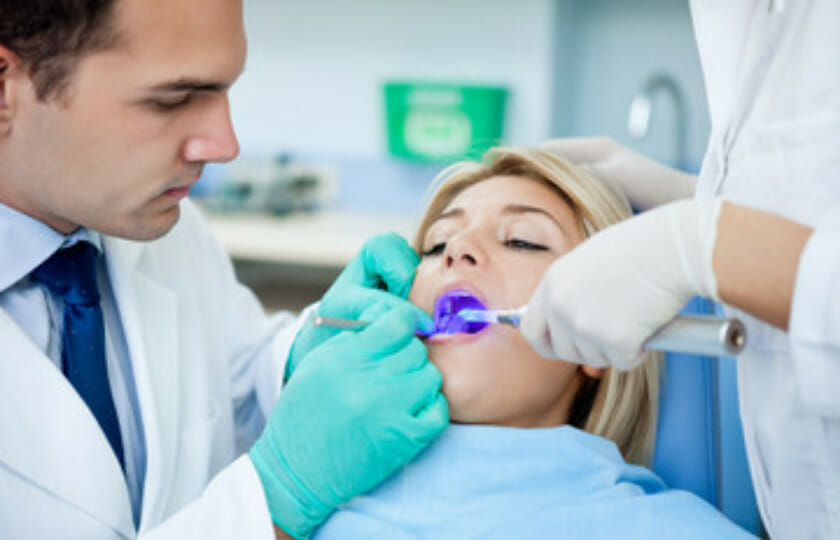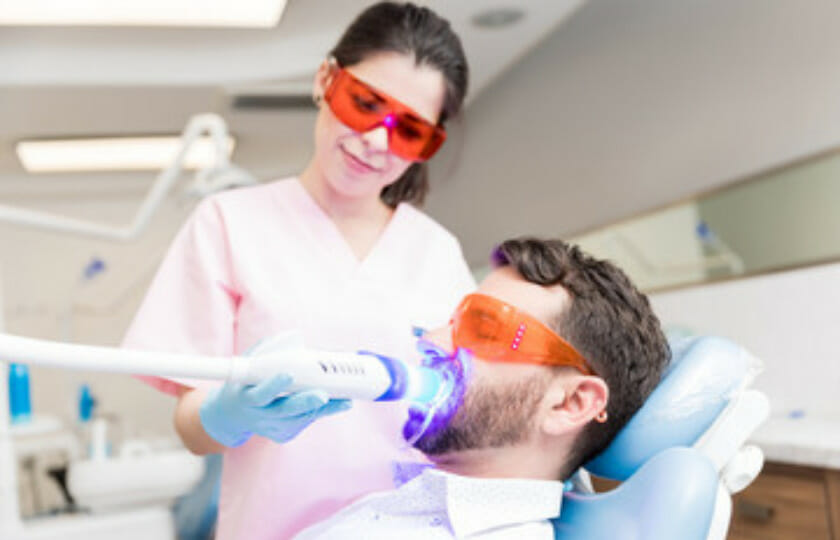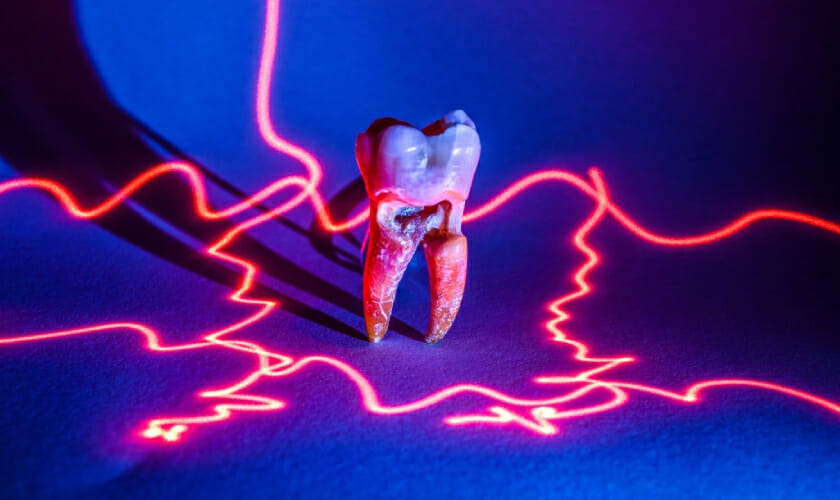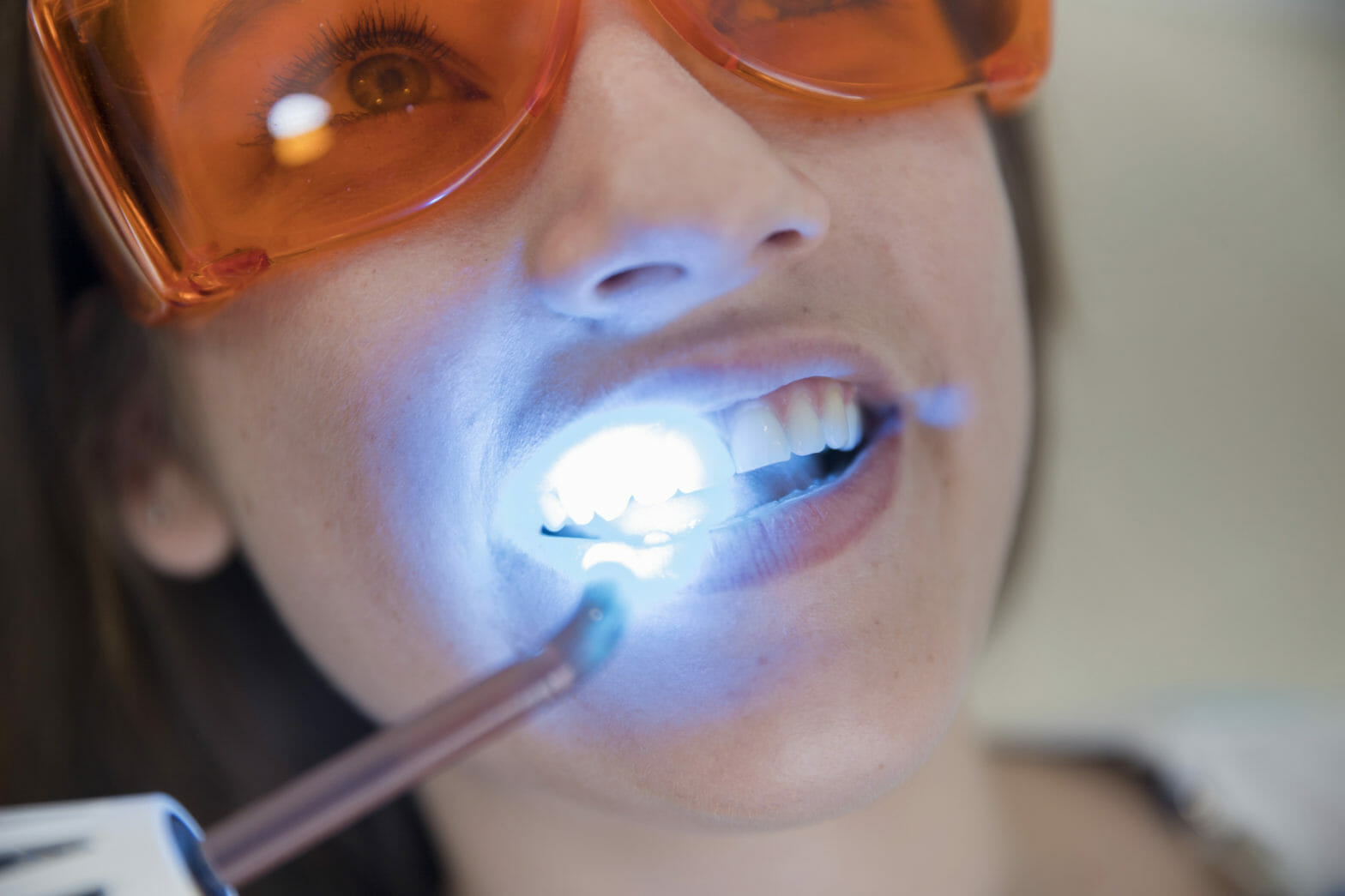Laser treatment is a treatment for gum disease that doesn’t require surgery. The dentist in Dallas, TX uses a laser to get into an infected area and remove bacteria and tissue that have been infected. It is a great alternative to traditional gum surgery because it doesn’t need stitches or cutting, and it doesn’t hurt… Continue reading Advantages Of Laser Therapy In Dallas
Lasers are a cutting-edge technique for treating a wide range of illnesses in a wide range of medical professions. Depending on the application, they emit magnified light, which may be used to remove, alter, or heal tissues. Lasers are used for various surgical, and dental treatments, such as eliminating overgrowth tissues, whitening teeth, and changing… Continue reading Uses Of Lasers In Gum and Periodontal Diseases
What is Laser Therapy in dentistry? If you’ve never come across this innovative type of dental care, now is the time to learn! If the drilling sound at the dentist makes you a little tense, then dental laser treatment might be apt for you! It is used to get relief from headaches, pain, and inflammation.… Continue reading THE ROLE OF LASER THERAPY IN DENTISTRY!
Although it is a new type of technology, many patients who try laser periodontal therapy are pleased with the results. Similar to other industries, lasers have revolutionized oral care and given doctors a new tool to treat gum disease. In this blog, we tell you about the benefits of laser assisted periodontal treatment. What Is Periodontal… Continue reading What Are the Benefits of Laser Assisted Periodontal Treatment?
Uh oh. You just found out you have gum disease. What now? Given the swollen, painful gums, tenderness, and bad breath, you’re probably looking for a quick, effective solution—but which option is the best? Laser periodontal therapy may be just the ticket. With thousands of satisfied patients so far, laser therapy could be the solution you’ve… Continue reading Can Laser Therapy Prevent Future Gum Disease?
Understanding Laser Therapy Techniques
Laser therapy encompasses various techniques that utilize focused light to treat dental conditions. These methods can range from soft tissue procedures to hard tissue applications, each tailored to address specific dental issues effectively.
For instance, diode lasers are often used in soft tissue surgeries to remove excess gum tissue, while Nd:YAG lasers can assist in bone regeneration. By understanding these techniques, patients can better appreciate how laser therapy can be integrated into their dental care.
Comparing Laser Therapy to Traditional Treatments
Patients frequently wonder how laser therapy stacks up against traditional dental treatments. Unlike conventional methods that may require incisions and sutures, laser therapy is generally less invasive, leading to reduced discomfort and quicker recovery times.
For example, traditional gum surgery can involve significant downtime, whereas laser procedures often allow patients to return to their daily activities almost immediately. This comparison highlights the advantages of modern technology in enhancing patient experiences in dental care.
Patient Testimonials on Laser Therapy
Hearing from patients who have undergone laser therapy can provide valuable insights into its effectiveness. Many individuals report significant improvements in their dental health and overall comfort following laser treatments.
For instance, a patient who suffered from chronic gum disease may share their journey of how laser therapy not only alleviated their symptoms but also restored their confidence in their smile. Such testimonials can help prospective patients make informed decisions regarding their treatment options.
Frequently Asked Questions About Laser Therapy
As laser therapy becomes more popular in dental practices, many patients have common questions regarding its safety and efficacy. Understanding these aspects can help alleviate concerns and encourage patients to consider this innovative treatment.
Questions often include inquiries about the types of lasers used, the duration of treatments, and potential side effects. Providing clear, informative answers to these FAQs can enhance patient education and comfort with laser procedures.





